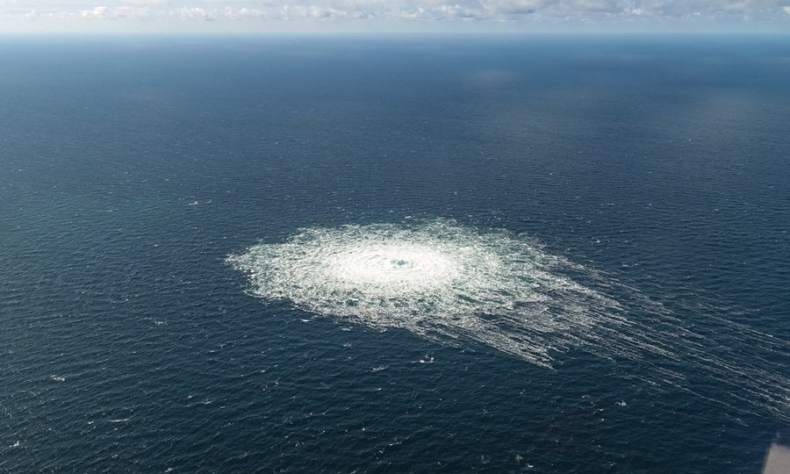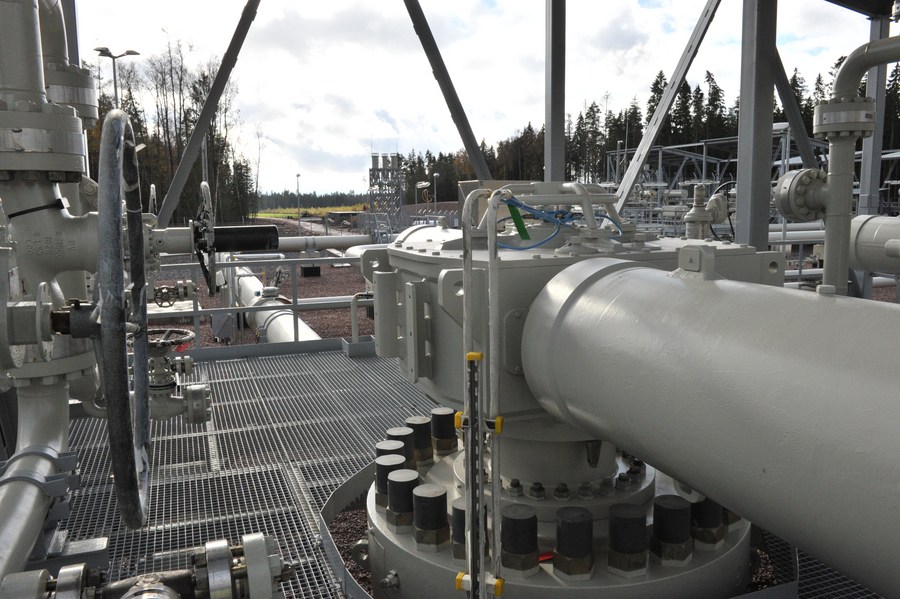Pipeline Sabotage and Europe’s Future

The spectacular sabotage of the Nord Stream pipelines is far more than a move to weaken Russia in the context of the Ukraine war. The sabotage impacts not only the European region but involves global geopolitical implications and consequences.
The spectacular sabotage operation in the Baltic Sea against the Nord Stream 1 and 2 pipelines has global consequences. The future of Europe is at stake as the sabotage has direct impact on the continent’s economy. Since Europe is integrated with the global economy, as Europe weakens so does the global economy.
For now, the perpetrators are unknown but it is logical to suspect NATO. Given the war in Ukraine, the United States, United Kingdom, Ukraine, and Poland seem to stand out in this regard. Investigations may identify the saboteurs in due course.
It is not likely that the pipelines can be repaired any time soon. It may be that they will not be able to be repaired. In either case, energy costs will rise further in Europe. Sanctions on energy can be removed through diplomatic negotiations but the Nord Stream pipelines are broken and inoperable.
Economic and geopolitical consequences
Germany and other European economies such as France and Italy have functioned based on a model of relatively low-cost energy. That context changed over the last several years. The Ukraine war caused new sanctions to be imposed on Russia, which impact energy and food prices in particular.
With Europe already in crisis, and inexorably heading into a much deeper crisis, it would have been possible for Europeans to ease up on sanctions in order to permit the Nord Stream 2 pipeline to deliver gas to Europe. The sabotage of the pipelines rules this out at least in the near term.

Europe was already experiencing an economic slowdown back in 2018-2019. Then came the Trump trade and technology war against China. On top of this came the black swan Covid crisis. The net effect of all these shocks to the European and to the global economy was negative and today it is increasingly negative given the piling on of further sanctions against Russia.
The operation of the international free trade system was disrupted and now essentially is inoperable. Massive sanctions imposed by the West against China and Russia vitiate any idea of free trade. The world entered into a phase of economic warfare and managed trade that have caused unprecedented economic distortions. It may take a decade to recover.
Rising costs for energy impact global agriculture in terms of fertilizer, the cost of operating agricultural machinery, and the cost of processing. These rising energy and food costs globally, in turn, push inflation to higher levels.
But at the same time there is the phenomenon of the increasing appreciation of the U.S. dollar.
The rising costs of energy are shutting down European industrial production. Already the impact is felt sharply in the steel, aluminum, fertilizer, and glass industries among others. Industrial shutdowns, of course, mean rising unemployment. When this rising unemployment is accompanied as it is today by sharply rising food costs, heating costs, and housing costs, the result is social unrest and instability. Not surprisingly, there currently are massive protest demonstrations across Europe relating to the increasingly grim economic situation. This social unrest has political consequences. The recent Italian elections are a case in point, reflecting the dissatisfaction with political leaders incapable of competent management.

The geopolitics of the present situation are complex. Germany is the leading economy in Europe and it is in shock. France and Italy as significant economic factors are also distressed. The German economy is the driver of the European economy. Thus, as Germany sinks Europe also sinks.
The U.S. and UK since World War II have made every effort to prevent German-Russian cooperation. The sabotage of the Nord Stream pipelines is consistent with this long-term geopolitical strategy. By damaging and disrupting these pipelines the leverage of Russia as an energy supplier to Europe is undermined and thus weakening its economic and political influence.
Rising dollar and financial imperialism
The euro is crashing while the U.S. dollar is ascending. This phenomenon has complex consequences. For example, ironically, the depreciation of the euro means that the value of U.S. investments in Europe is lessened and the dollar value of profits earned there is also lessened. Thus, the global earnings of U.S. multinational corporations will be correspondingly reduced.
The rising dollar impacts globally because it raises the costs of servicing debt and the costs of imports, such as oil and food, traded in U.S. dollars.
Washington, from a geopolitical standpoint, seeks to maintain a neoliberal global economy as a key aspect of maintaining its hegemony. But the growing international economic crisis fosters political volatility and resistance to economic neoliberalism. This is, and increasingly will be during this crisis of capitalism, manifested in the rise of populist opposition from the Left as well as from the Right.
At the state-to-state level, in the Global South among non-Western countries, we see increasing cooperation to promote peace and development. New platforms and projects have come to the fore in recent years such as the Belt and Road Initiative, the Shanghai Cooperation Organization, BRICS, ASEAN, and the Eurasian Economic Union. These new factors can help offset U.S. and Western hegemonism despite their NATO war machine.

These new factors also can impact the international monetary system which has been dollar-based since World War II. De-dollarization is a new phenomenon which likely will gain traction as countries cooperate to find innovative ways to protect themselves from financial imperialism and from being enmeshed in the neocolonialism imposed by the West.
While Europe is being dragged down by Washington’s policies, the Global South is organizing to defend its interests. There is a new spirit of solidarity. Some analysts have noted that the world is dividing into two camps calling it a “bifurcation”. The factors causing this division are Western hegemonism and the financial imperialism of the dollar as the primary international reserve currency and in the form of U.S. Treasury paper held by central banks around the world.
In the present situation, the sabotage of the Nord Stream pipelines as a wake-up call can give added impetus to countries seeking to defend themselves from Western financial imperialism and from the imposition of Western neoliberalism as a strategy for neocolonialism.
The spectacular sabotage of the Nord Stream pipelines is far more than a move to weaken Russia in the context of the Ukraine war. The sabotage impacts not only the European region but, as has been argued, involves global geopolitical implications and consequences.
Western politicians led by Washington must cease their suicidal economic and foreign policies. At this late stage in the unfolding world crisis only constructive diplomacy can bring peace and development rather than war and economic ruin.
The article reflects the author’s opinions, and not necessarily the views of China Focus.
 Facebook
Facebook
 Twitter
Twitter
 Linkedin
Linkedin
 Google +
Google +







